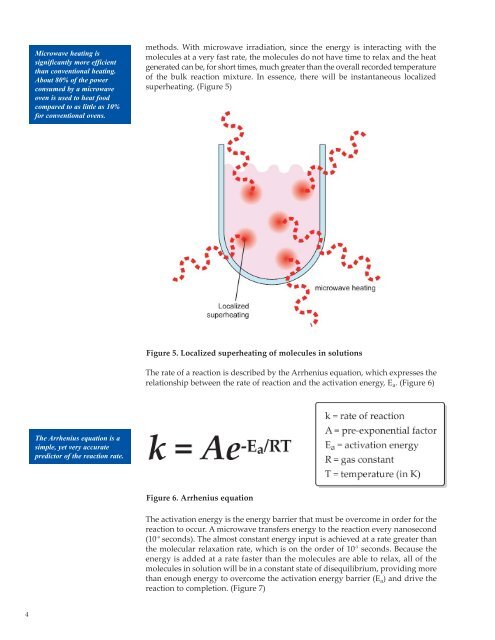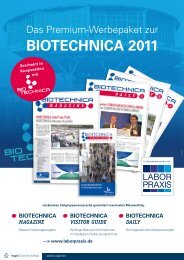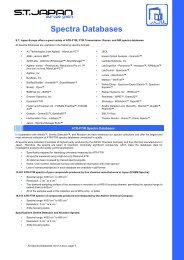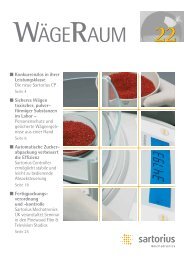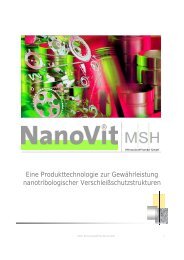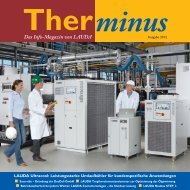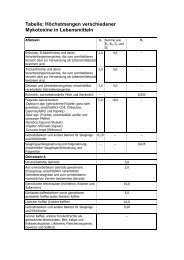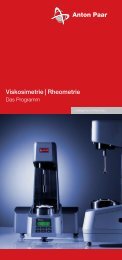Clean, Fast Organic Chemistry - LaborPraxis
Clean, Fast Organic Chemistry - LaborPraxis
Clean, Fast Organic Chemistry - LaborPraxis
You also want an ePaper? Increase the reach of your titles
YUMPU automatically turns print PDFs into web optimized ePapers that Google loves.
4<br />
Microwave heating is<br />
significantly more efficient<br />
than conventional heating.<br />
About 80% of the power<br />
consumed by a microwave<br />
oven is used to heat food<br />
compared to as little as 10%<br />
for conventional ovens.<br />
The Arrhenius equation is a<br />
simple, yet very accurate<br />
predictor of the reaction rate.<br />
methods. With microwave irradiation, since the energy is interacting with the<br />
molecules at a very fast rate, the molecules do not have time to relax and the heat<br />
generated can be, for short times, much greater than the overall recorded temperature<br />
of the bulk reaction mixture. In essence, there will be instantaneous localized<br />
superheating. (Figure 5)<br />
Figure 5. Localized superheating of molecules in solutions<br />
The rate of a reaction is described by the Arrhenius equation, which expresses the<br />
relationship between the rate of reaction and the activation energy, E a. (Figure 6)<br />
Figure 6. Arrhenius equation<br />
The activation energy is the energy barrier that must be overcome in order for the<br />
reaction to occur. A microwave transfers energy to the reaction every nanosecond<br />
(10 -9 seconds). The almost constant energy input is achieved at a rate greater than<br />
the molecular relaxation rate, which is on the order of 10 -5 seconds. Because the<br />
energy is added at a rate faster than the molecules are able to relax, all of the<br />
molecules in solution will be in a constant state of disequilibrium, providing more<br />
than enough energy to overcome the activation energy barrier (E a) and drive the<br />
reaction to completion. (Figure 7)


